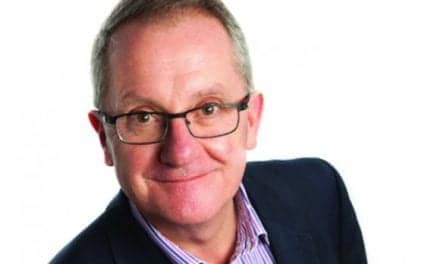Having to shout to be heard, constantly repeating yourself, and competing over the blare of a too-loud TV…living with someone experiencing hearing loss can be exhausting, frustrating, and often dispiriting.
And now, new research by academics at the University of Nottingham has suggested that the impact of the condition on those closest to them should be considered when personalizing rehabilitation plans for patients with deafness, the University announced on its website. The research, published in the journal Trends in Hearing, was led by PhD student Venessa Vas through the National Institute of Health Research (NIHR) Nottingham Biomedical Research Centre (BRC).
“This is research which reviews the existing evidence we have on the impact of hearing loss on those diagnosed with the condition, as well as those around them,” said Vas. “Currently, there is no cure for hearing loss, so we need to consider ways to help with aspects of life affected by hearing loss, such as those highlighted in this research.”An estimated 300 million adults around the world are living with disabling hearing loss, according to the World Health Organization (WHO), which can affect almost every aspect of daily life leading to isolation, difficulties socializing, low self-esteem, and problems in the workplace.However, hearing loss not only affects the individual but those with whom the person with hearing impairment communicates on a regular basis—their spouse, siblings, children, friends, relatives, colleagues, and carers, according to the announcement. Often, information from these so-called “communications partners” can be used to get a more accurate picture of the individual’s hearing loss and level of resulting disability.
Both perspectivesThe Nottingham research, funded by the Medical Research Council, reviewed more than 70 previous studies that looked at the complaints made by people with hearing loss and those closest to them to examine the same issue from both perspectives. The study uncovered common areas causing concern for both those experiencing hearing loss and those living closest to them. Flashpoint areas included:
“Hearing loss is a chronic condition that affects the whole family” said Vas. “Yet, to our knowledge, our work represents the first attempt to piece together a picture of the effect of hearing loss from the perspectives of people with hearing loss and their partners. “Evidence from video-recorded audiology appointments shows that family members have a strong interest in being involved and sharing their experiences of the patient’s hearing loss. However, they are typically discounted by the audiologist.” The researchers believe that listening to the views of partners and family during clinical consultations and involving them in future treatment strategies could help to ease the patient’s journey through rehabilitation. This research was funded as part of the NIHR support to research into hearing loss in Nottingham. Hearing is one of six areas of clinical research that form part of the new NIHR Nottingham BRC, a partnership between Nottingham University Hospitals, NHS Trust, and the University of Nottingham. The aim of the Nottingham BRC is to translate high-quality research into treatments, technology, and therapies over the next 5 years. Original Paper: Vas V, Akeroyd MA, Hall DA. A data-driven synthesis of research evidence for domains of hearing loss as reported by adults with hearing loss and their communication partners. Trends in Hearing. October 5, 2017; 21. DOI: 10.1177/2331216517734088 Source: University of Nottingham, Trends in Hearing Related information: The Hearing Review has published a series of key articles in 2016-2017 related to the family centered care approach: Family-centered Adult Audiologic Care: A Phonak Position Statement. By Gurjit Singh, PhD; Louise Hickson, PhD; Kris English, PhD; Sigrid Scherpiet, PhD; Ulrike Lemke, PhD; Barbra Timmer, MACAuD; Ora Buerkli-Halevi, MS; Joseph Montano, EdD; Jill Preminger, PhD; Nerina Scarinci, PhD; Gabrielle H. Saunders, PhD; Mary Beth Jennings, PhD, and Stefan Launer, PhD. Apr 2016 Hearing Review. Family-centered Audiology Care: Working with Difficult Conversations. By Kris English, PhD; Mary Beth Jennings, PhD; Christopher Lind, PhD; Joseph Montano, EdD; Jill Preminger, PhD; Gabrielle Saunders, PhD; Gurjit Singh, PhD; Elizabeth Thompson, AuD. August 2016 Hearing Review. Family-centered Audiology Care: Making Decisions and Setting Goals Together. By Louise Hickson, PhD; Christopher Lind, PhD; Jill Preminger, PhD; Brittany Brose, AuD; Rebecca Hauff, and Joseph Montano, PhD. Nov 2016 Hearing Review. Family-centered Audiology Care: How Do I Implement Family-centered Care in My Practice? By Bettina Turnbull, MAud. December 2016 Hearing Review. Family-centered Audiology Care: Working with Partners Reporting “Incongruent” Hearing Aid Outcome, by Gabrielle Saunders, PhD, Jill Preminger, PhD, and Nerina Scarinci, PhD. February 2017 Hearing Review. Family-Centered Audiology Care: Emotion and Reason in Hearing Healthcare. By Gurjit Singh, PhD; Caitlinn Barr, PhD; Joseph Montano, EdD; Kris English, PhD; Frank Russo, PhD, and Stefan Launer, PhD. May 2017 Hearing Review. |





At my research facility, we have always felt the need for family intervention in the counseling process when helping the patient adapt to life with hearing aids. The aimn is to remove the negativity associated with hearing aid use and its limitations when used by seniors.